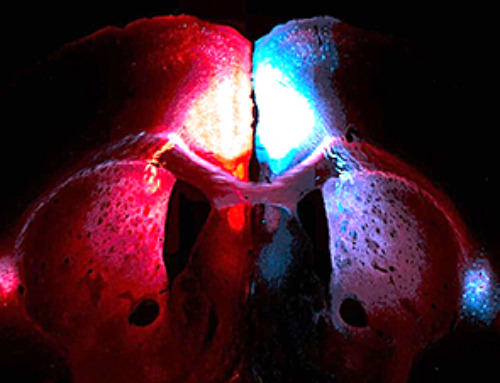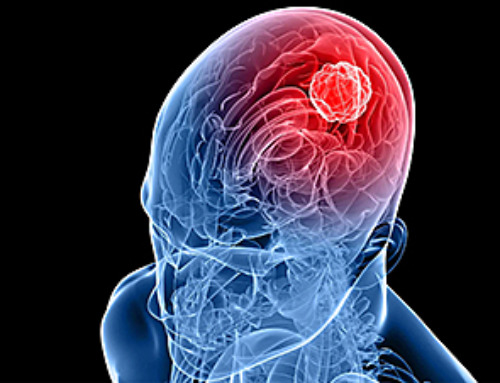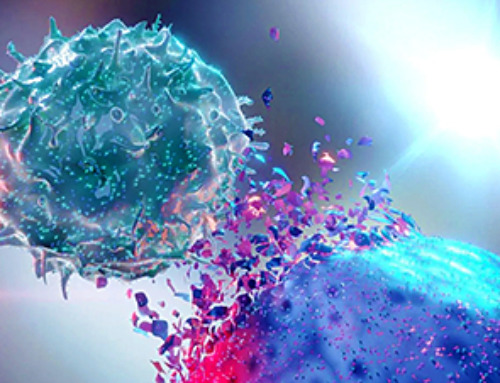A new study from the Hebrew University of Jerusalem published in the Proceedings of the National Academy of Sciences sheds light on one of life’s greatest mysteries: why biology is based on a very specific set of amino acids, and in particular, why nature selected alpha amino acids as the foundation for proteins.
The research, led by Dr. Moran Frenkel-Pinter and her lab members Sarah Fisher and Yishi Ezerzer of the Institute of Chemistry and the Center for Nanoscience and Nanotechnology at the Hebrew University, explored the properties of depsipeptides—simple model peptide-like molecules that could have formed on early Earth through natural processes.
Unlike modern peptides, depsipeptides contain a mix of ester and amide bonds, making them easier to form under prebiotic conditions but less stable over time.
Every living organism on Earth forms its proteins from the exact same set of 20 amino acids. Why that specific set? The new study suggests that life’s dependence on these 20 amino acids is no accident. A key question has puzzled scientists for decades: why did life favor alpha amino acids over their beta or gamma counterparts, even though all were abundant on prebiotic Earth?
To test whether molecular assembly played a role, Frenkel-Pinter and her team synthesized depsipeptides using a wide range of hydroxy and amino acids, then observed their ability to self-assemble in solution.
The results were striking. Depsipeptides built from alpha acids readily formed stable, droplet-like assemblies that persisted for weeks, even after freezing and thawing. In contrast, beta-based assemblies, if formed, phase-separated more quickly in solution and showed significantly lower physical stability. This difference, the researchers argue, could have been a decisive factor in the evolutionary “choice” of the alpha backbone.
“Self-assembly is one of life’s most fundamental prerequisites,” said Dr. Frenkel-Pinter. “Our findings suggest that the superior ability of alpha-based proto-peptides to form stable compartments may have given them a crucial evolutionary edge, setting the stage for the protein backbones we see in biology today.”
“The question of why evolution handpicked a specific set of amino acids has remained a mystery for a very long time. Taking even a single step toward answering this long-lasting question is remarkable, and it is a privilege to contribute to this pursuit,” said Ezerzer, a master’s student co-leading this project together with Fisher.
“We demonstrate here, for the first time, the ability of depsipeptides to self-assemble, similar to modern peptides. While these findings are a breakthrough in the field of chemical evolution, they may also have future implications for other fields such as the pharmaceutical industry,” said Fisher.
The study marks the first time that the assembly properties of alpha and beta proto-peptide backbones have been directly compared. By demonstrating that stability at the molecular level could have influenced chemical evolution, the research proposes an assembly-driven selection model for life’s earliest building blocks.
These findings add a new dimension to origins-of-life studies, suggesting that it was not just chemical reactivity but also the capacity for long-lasting self-assembly that shaped the transition from prebiotic chemistry to biology.
More information: Proto-peptide Backbone Affects Assembly in Aqueous Solutions, Proceedings of the National Academy of Sciences (2025). www.pnas.org/doi/10.1073/pnas.2500503122
Journal information: Proceedings of the National Academy of Sciences
Provided by Hebrew University of Jerusalem
News
This Is Why the Same Virus Hits People So Differently
Scientists have mapped how genetics and life experiences leave lasting epigenetic marks on immune cells. The discovery helps explain why people respond so differently to the same infections and could lead to more personalized [...]
Rejuvenating neurons restores learning and memory in mice
EPFL scientists report that briefly switching on three “reprogramming” genes in a small set of memory-trace neurons restored memory in aged mice and in mouse models of Alzheimer’s disease to level of healthy young [...]
New book from Nanoappsmedical Inc. – Global Health Care Equivalency
A new book by Frank Boehm, NanoappsMedical Inc. Founder. This groundbreaking volume explores the vision of a Global Health Care Equivalency (GHCE) system powered by artificial intelligence and quantum computing technologies, operating on secure [...]
New Molecule Blocks Deadliest Brain Cancer at Its Genetic Root
Researchers have identified a molecule that disrupts a critical gene in glioblastoma. Scientists at the UVA Comprehensive Cancer Center say they have found a small molecule that can shut down a gene tied to glioblastoma, a [...]
Scientists Finally Solve a 30-Year-Old Cancer Mystery Hidden in Rye Pollen
Nearly 30 years after rye pollen molecules were shown to slow tumor growth in animals, scientists have finally determined their exact three-dimensional structures. Nearly 30 years ago, researchers noticed something surprising in rye pollen: [...]
NanoMedical Brain/Cloud Interface – Explorations and Implications. A new book from Frank Boehm
New book from Frank Boehm, NanoappsMedical Inc Founder: This book explores the future hypothetical possibility that the cerebral cortex of the human brain might be seamlessly, safely, and securely connected with the Cloud via [...]
How lipid nanoparticles carrying vaccines release their cargo
A study from FAU has shown that lipid nanoparticles restructure their membrane significantly after being absorbed into a cell and ending up in an acidic environment. Vaccines and other medicines are often packed in [...]
New book from NanoappsMedical Inc – Molecular Manufacturing: The Future of Nanomedicine
This book explores the revolutionary potential of atomically precise manufacturing technologies to transform global healthcare, as well as practically every other sector across society. This forward-thinking volume examines how envisaged Factory@Home systems might enable the cost-effective [...]
A Virus Designed in the Lab Could Help Defeat Antibiotic Resistance
Scientists can now design bacteria-killing viruses from DNA, opening a faster path to fighting superbugs. Bacteriophages have been used as treatments for bacterial infections for more than a century. Interest in these viruses is rising [...]
Sleep Deprivation Triggers a Strange Brain Cleanup
When you don’t sleep enough, your brain may clean itself at the exact moment you need it to think. Most people recognize the sensation. After a night of inadequate sleep, staying focused becomes harder [...]
Lab-grown corticospinal neurons offer new models for ALS and spinal injuries
Researchers have developed a way to grow a highly specialized subset of brain nerve cells that are involved in motor neuron disease and damaged in spinal injuries. Their study, published today in eLife as the final [...]
Urgent warning over deadly ‘brain swelling’ virus amid fears it could spread globally
Airports across Asia have been put on high alert after India confirmed two cases of the deadly Nipah virus in the state of West Bengal over the past month. Thailand, Nepal and Vietnam are among the [...]
This Vaccine Stops Bird Flu Before It Reaches the Lungs
A new nasal spray vaccine could stop bird flu at the door — blocking infection, reducing spread, and helping head off the next pandemic. Since first appearing in the United States in 2014, H5N1 [...]
These two viruses may become the next public health threats, scientists say
Two emerging pathogens with animal origins—influenza D virus and canine coronavirus—have so far been quietly flying under the radar, but researchers warn conditions are ripe for the viruses to spread more widely among humans. [...]
COVID-19 viral fragments shown to target and kill specific immune cells
COVID-19 viral fragments shown to target and kill specific immune cells in UCLA-led study Clues about extreme cases and omicron’s effects come from a cross-disciplinary international research team New research shows that after the [...]
Smaller Than a Grain of Salt: Engineers Create the World’s Tiniest Wireless Brain Implant
A salt-grain-sized neural implant can record and transmit brain activity wirelessly for extended periods. Researchers at Cornell University, working with collaborators, have created an extremely small neural implant that can sit on a grain of [...]





















